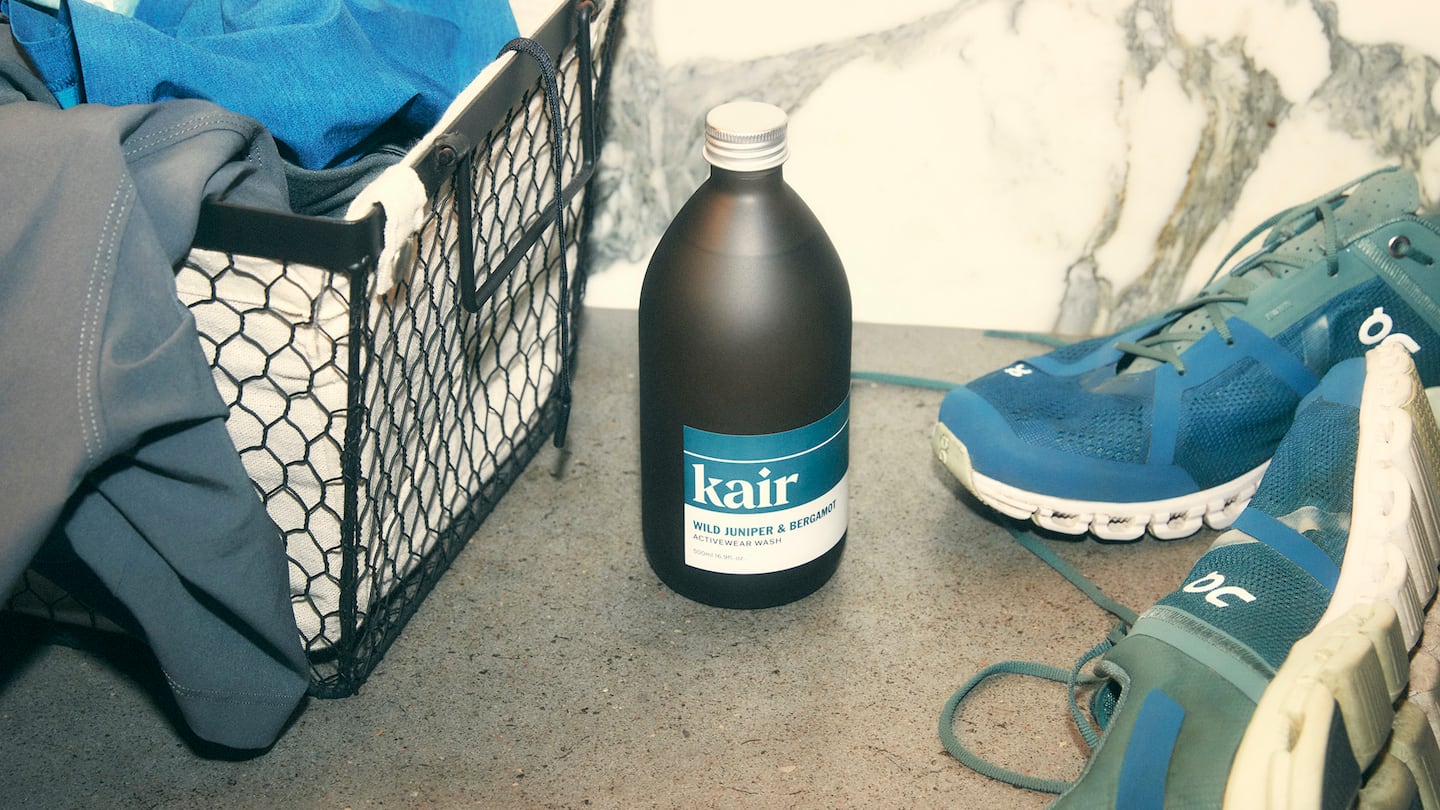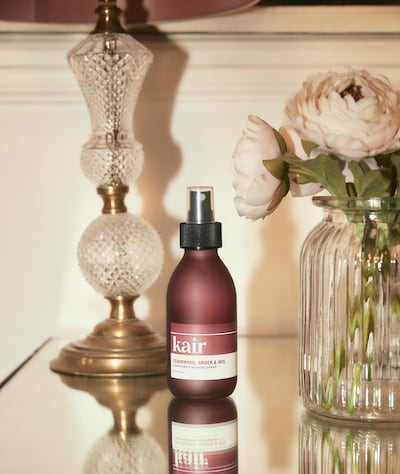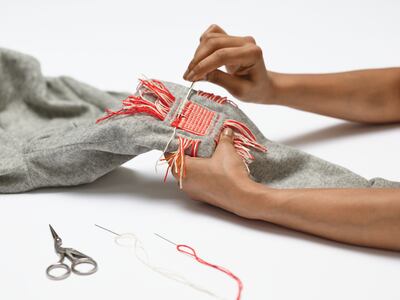
The Business of Fashion
Agenda-setting intelligence, analysis and advice for the global fashion community.

Agenda-setting intelligence, analysis and advice for the global fashion community.

Frej Lewenhaupt always dreamed of starting his own fashion label. But the business the former textile engineer ended up co-founding in 2014 focused on a much more practical item.
Stockholm-based Steamery’s flagship product is a hand-held steamer, available in a range of Instagrammable pastel hues like blush pink and mint green. The concept drew on a now-familiar marketing playbook from the direct-to-consumer boom, rebranding an unglamorous, industrial item as a cool, accessible lifestyle accessory.
Instead of pitching to home goods retailers, Lewenhaupt and his team canvassed for business at apparel trade shows around Europe, and targeted high-end department stores and cult fashion boutiques as stockists. Today, Steamery’s range of products — which also includes fabric shavers, detergents and clothing brushes — is stocked alongside Gucci dresses and Prada T-shirts at retailers like Harrods and Net-a-Porter.

The company’s revenue hit €7 million ($8.2 million) in 2019 and managed to keep growing through the pandemic to reach €8 million last year. Lewenhaupt sees growing consumer demand for more sustainable products as a healthy tailwind that’s likely to drive further momentum, betting on interest from shoppers looking to prolong the lifespan of their garments .
ADVERTISEMENT
He’s not the only one. A growing number of fashion companies and start-ups are leaning into the historically unglamorous clothing care market in a bid to capitalise on this shift with shelfie-worthy eco products and digitised clothing care services.
“All these brands are collectively trying to change garment care from something boring into something more appealing, and make it cool and trendy, and make it a status thing to take care of your clothes,” Lewenhaupt said. “Five or 10 years ago, that was a completely untapped concept.”
The potential market is substantial. Unilever’s laundry products division alone netted €8 billion in sales last year. In 2019, the consumer goods giant acquired high-end detergent brand The Laundress (an early mover in the space) for an undisclosed sum. And it’s not just laundry products. A widening pool of brands are exploring expanding into repair, a service historically limited to luxury brands like Chanel and Dior or sustainability-focused players like Patagonia.
All these brands are collectively trying to change garment care from something boring into something more...cool and trendy.
In July, multi-brand boutique Browns Fashion announced a partnership with London-based on-demand repair services app The Restory, which already has relationships that include Selfridges and parent company Farfetch. Retailers from Asos to End Clothing now stock niche detergent brands like Attirecare and The Laundress alongside new-season collections. H&M Group’s & Other Stories launched its own line of detergents and other care products last year, while Inditex sells washing products under the umbrella of its Zara Home label.
“There’s a whole niche of products centred around aftercare that brands can tap into that are probably relatively low-cost, but they can make quite high margins on — all the while benefiting from press and the brand image that’s associated with sustainability,” said Louise Déglise-Favre, apparel analyst at Global Data. “It’s happening now, because consumers are being increasingly more aware, and conscious of the impact on the environment.”
New Product Opportunities
Former fashion executive Sally Hughes launched laundry brand Kair last month, offering a range of specialised detergents, fabric softeners and garment fresheners. The brand says its formulas allow fabrics that are typically dry-clean-only, like silks and delicate cottons, to be washed at home.

Hughes became convinced of the business opportunity while hosting a pop-up when working as chief business officer at British contemporary brand Rixo. “In the space of six months ... I saw more customers coming in and asking about clothing care, fabrication and sustainability than I’ve seen in five years,” she said.
ADVERTISEMENT
Hughes is hoping to tap into that mix of consumer interest in sustainability and fashion, pitching her products to brands as a way to both add value to shoppers and demonstrate a commitment to improving environmental impact.
“It’s mutually beneficial,” said Hughes, “It’s beneficial… as a revenue opportunity for the brand, and there’s a care and garment longevity opportunity for the customer.”
Six-year-old slow-fashion brand Asket said its experience talking to consumers about clothing care has already proven valuable. The brand offers a host of advice on its website, guiding customers through everything from stain removal to simple repairs. It started selling detergents, washing bags and lint brushes from third-party brands like Steamery and Tangent Garment Care as an extension of this in 2018. The products represent a sliver of overall sales, but the content has driven substantial engagement.
“It’s not a big portion of sales, [but] it does keep selling steadily,” said Asket co-founder Jakob Dworsky. “Some of the products are very popular. And I think it’s appreciated.”
New Business Models
Many brands entering the clothing care space are also eyeing the opportunities likely to open up more broadly as demand for more sustainable products becomes increasingly mainstream.
Hughes is hoping to capitalise on interest from consumers who don’t want brands to sell them products that require chemical-intensive dry cleaning. Many labels advertise their clothes as dry clean only because average detergents from the supermarket are often too harsh, formulated with bleaching agents and enzymes that would damage more delicate fabrics, Hughes said. She’s pitching her products as a safe alternative that can be marketed alongside a suite of engaging content to educate consumers on garment care. Kair is currently stocked in Irish department store Brown Thomas and has been approached by a number of other fashion labels, Hughes said.

Meanwhile, fast-growing repair service The Restory aims to offer a plug-and-play solution for labels who want to start their own repair offering. It’s an area a growing roster of brands are considering moving into, but presents tricky logistical challenges. Asket recently launched a complimentary repair service at its Stockholm store, but is still trying to figure out how feasible it would be, as a smaller brand, to roll the service out in other markets where it doesn’t have stores — a move that could require a significant financial investment.
ADVERTISEMENT
The Restory chief executive Vanessa Jacobs says her company can offer a solution. In addition to its on-demand repair service app, which launched in 2015 and has a roster of 8,800 clients, the company operates a Farfetch-style marketplace that connects fashion brands with its network of repair suppliers. Currently the company powers Farfetch’s “Fix” repair services, and works more informally with half a dozen brands. It’s preparing to launch its first global brand partnership at the end of the year.
Jacobs said repair services have the opportunity to become a significant revenue stream for the industry, positioning the sector’s growth potential as similar to that of rental or resale.
“If you take the top six brands of LVMH, we’re talking about hundreds of millions of pounds worth of opportunity,” she said.
Related Articles:
The Sustainability Regulations That Could Reshape Fashion
Everyone Is Launching Rental Services. Is There Enough Demand?
Traces of cotton from Xinjiang were found in nearly a fifth of samples from American and global retailers, highlighting the challenges of complying with a US law aimed at blocking imports that could be linked to forced labour in China.
The fashion industry continues to advance voluntary and unlikely solutions to its plastic problem. Only higher prices will flip the script, writes Kenneth P. Pucker.
The outerwear company is set to start selling wetsuits made in part by harvesting materials from old ones.
Companies like Hermès, Kering and LVMH say they have spent millions to ensure they are sourcing crocodile and snakeskin leathers responsibly. But critics say incidents like the recent smuggling conviction of designer Nancy Gonzalez show loopholes persist despite tightening controls.